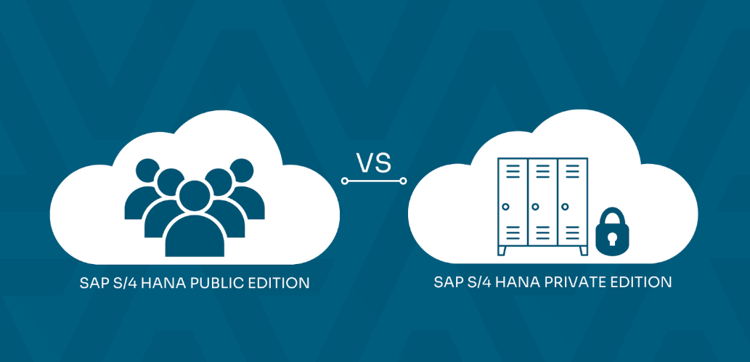Beyond Dawlish
SAP S4 HANA Public Vs. Private Cloud: Which One Is Right For You?
Introduction
SAP S/4HANA offers two cloud deployment options—Public Cloud and Private Cloud—each catering to different business needs. The Public Cloud is a cost-effective, multi-tenant solution with standardized processes and automatic updates, ideal for SMBs. In contrast, the Private Cloud provides a dedicated, customizable environment suited for large enterprises with complex operations. Choosing the right option depends on factors like customization, compliance, cost, and IT control. Refer to the SAP S4 HANA Course for complete guidance in this field. This guide explores both models to help you decide the best fit for your business.
SAP S/4HANA Overview
SAP S/4HANA (SAP Business Suite 4 SAP HANA) is an advanced enterprise resource planning (ERP) suite designed to run on SAP’s high-performance in-memory database, SAP HANA. It provides real-time data processing, advanced analytics, and a simplified data model to help businesses operate more efficiently.
Key Features of SAP S/4HANA
- In-Memory Computing: Uses SAP HANA to process large volumes of data in real-time, improving performance and decision-making.
- Simplified Data Model: Reduces redundancies and aggregates, enabling faster data access and streamlined operations.
- Embedded Analytics: Real-time analytics and reporting are integrated within the system, reducing the need for external BI tools.
- User-Friendly Interface: SAP Fiori provides a modern, intuitive interface that enhances the user experience across devices.
- Intelligent Automation: AI, machine learning, and robotic process automation (RPA) enhance business processes.
- Industry-Specific Solutions: Supports multiple industries like manufacturing, retail, healthcare, and finance.
- Cloud and On-Premise Deployment: Available in different deployment models—on-premise, cloud, or hybrid—allowing businesses to choose as per their needs.
Business Benefits
- Enhanced Performance: Faster processing and reporting improve operational efficiency.
- Improved Decision-Making: Real-time analytics enable better insights and strategic planning.
- Lower IT Costs: Simplified data structures reduce maintenance and hardware costs.
- Scalability & Flexibility: Easily adaptable to business growth and evolving requirements.
SAP S/4HANA is the future of ERP, helping enterprises transition to digital transformation with efficiency and agility. Whether in finance, supply chain, or HR, businesses can leverage its capabilities for enhanced productivity and innovation.
SAP S/4HANA Public Vs. Private Cloud
SAP S/4HANA offers two cloud deployment options—Public Cloud and Private Cloud—each catering to different business needs. Choosing the right model depends on factors such as flexibility, customization, cost, and IT management.

SAP S/4HANA Public Cloud
SAP S/4HANA Public Cloud is a multi-tenant cloud solution managed by SAP. It offers a standardized ERP system with automatic updates, lower costs, and quick deployment. Refer to the SAP S4 HANA Certification course for more information.
Key Features:
- Lower Cost: Subscription-based pricing with no upfront infrastructure costs.
- Standardized Best Practices: Pre-configured business processes with limited customization.
- Automatic Updates: SAP handles updates and maintenance, ensuring businesses stay up to date.
- Scalability: Businesses can scale based on demand without managing infrastructure.
- Rapid Deployment: Quick implementation with minimal IT effort.
Who Should Choose Public Cloud?
- Small and mid-sized businesses (SMBs) looking for cost-effective ERP solutions.
- Companies with standardized processes that do not require heavy customization.
- Organizations that want a SaaS (Software as a Service) model with minimal IT maintenance.
SAP S/4HANA Private Cloud
SAP S/4HANA Private Cloud is a single-tenant cloud solution offering greater flexibility and customization. It provides full control over the ERP system while being hosted on SAP's or a third-party cloud infrastructure.
Key Features:
- Customization & Flexibility: Businesses can modify and extend functionalities as needed.
- Dedicated Environment: Resources are not shared with other tenants, ensuring better security and performance.
- Hybrid & On-Premise Integration: Can be integrated with on-premise systems or other cloud applications.
- Full Control Over Upgrades: Companies decide when to implement updates.
- Better Compliance & Security: Ideal for industries with strict regulatory requirements. Aspiring SAP professionals can check the Sap Certification Exam for the best skill development opportunities.
Who Should Choose Private Cloud?
- Large enterprises with complex business processes requiring high customization.
- Organizations needing industry-specific solutions and third-party integrations.
- Companies that require strict security, compliance, and data sovereignty.
Comparison Table: Public vs. Private Cloud
|
Feature |
Public Cloud |
Private Cloud |
|
Deployment Model |
Multi-tenant (SaaS) |
Single-tenant (Dedicated) |
|
Customization |
Limited |
Extensive |
|
Cost |
Lower, subscription-based |
Higher, but flexible pricing |
|
Security & Compliance |
Standard security |
Enhanced security, compliance-ready |
|
Control over Upgrades |
Automatic updates by SAP |
Business-controlled updates |
|
IT Management |
Fully managed by SAP |
Requires in-house or third-party management |
|
Best for |
SMBs, startups, fast-growing companies |
Large enterprises, regulated industries |
Conclusion
To sum up, if your business seeks a cost-effective, low-maintenance solution with fast deployment, the Public Cloud is a great choice. However, if you require high customization, control, and compliance, the Private Cloud is the better fit. The decision depends on your organization's size, IT capabilities, and regulatory needs.












